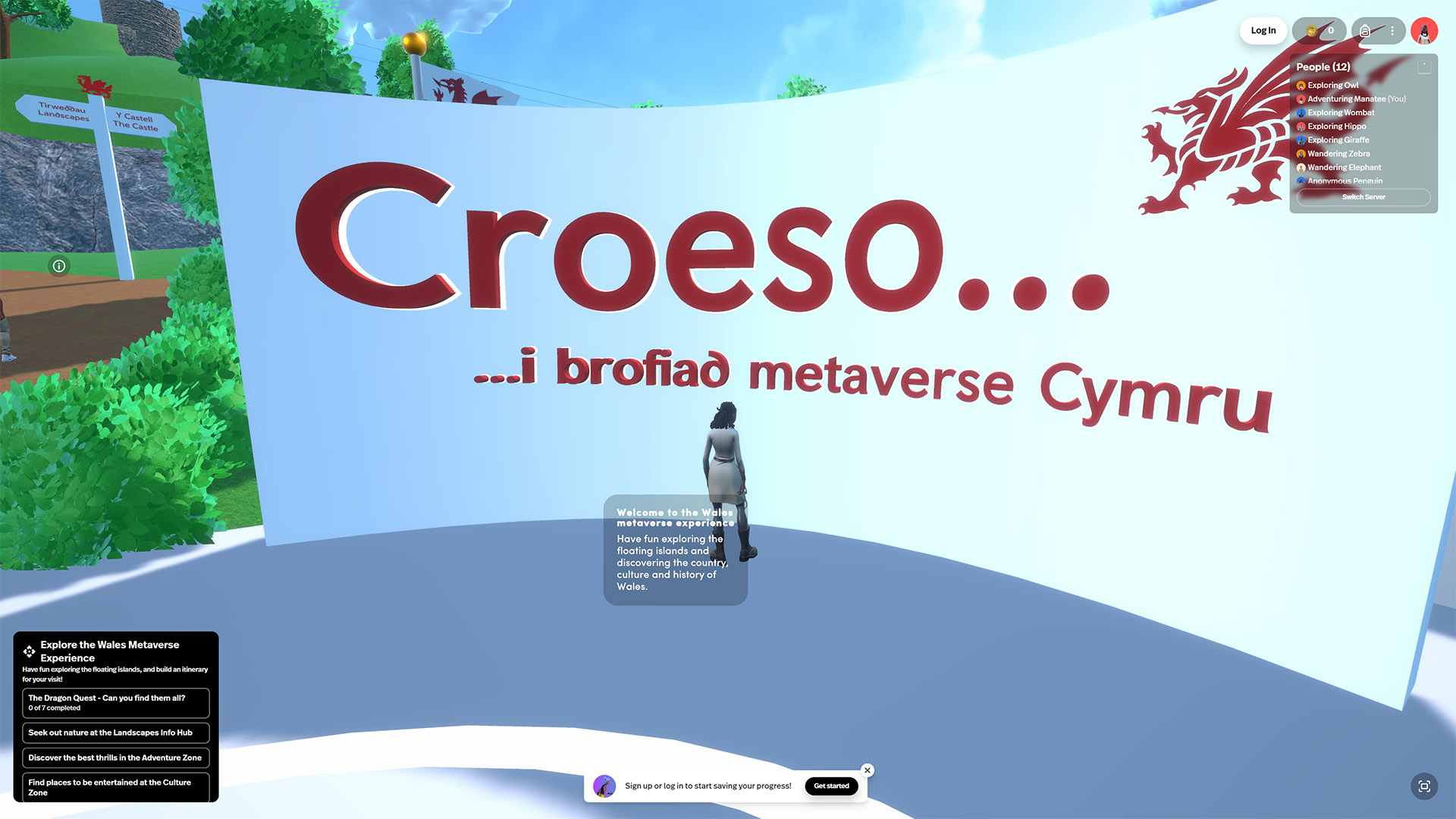
Dragons, daffodils, and Transport for Wales trains—just a few of the delights you'll find in Wales' very own metaverse. The Welsh government claims "Wales has become the first UK nation to launch in the metaverse". A virtual glimpse of the real wonders that lie just down the M4, providing you stay on past Bristol.
To visit, simply open your web browser and head to the Visit Wales webpage.
I've booted up the Cymru (Wales, in Welsh) metaverse from the comfort of my South Wales home. It's a green and pleasant land, filled with a number of Welsh flags and daffodils. And the metaverse is much the same, too. A seagull caws in the distance, waves lap against the shore, and the hubbub of modern life can be heard softly in the distance. The number of Welsh attractions and info points to explore are suitably signposted in both Welsh and English.
So far, so good.
It's conspicuously sunny in the Cymru metaverse. After a weekend enjoying gorgeous sunshine in Bannau Brycheiniog, all that I see outside my actual window is a grey sky and pouring rain—truly representative Welsh weather. I can't blame the metaverse for omitting this one detail, however.
The world is nothing out of the ordinary for virtual reality. It doesn't look any more like my home country than any half-baked VR environment. Though it's made a little more native by information points strewn next to buildings, or posted on trees. These tell of common Welsh phrases or dive deeper into the country's cardinal regions. Some are read aloud in both Welsh and English, which I use to test my own Welsh language skills, though most are simple pop-ups.
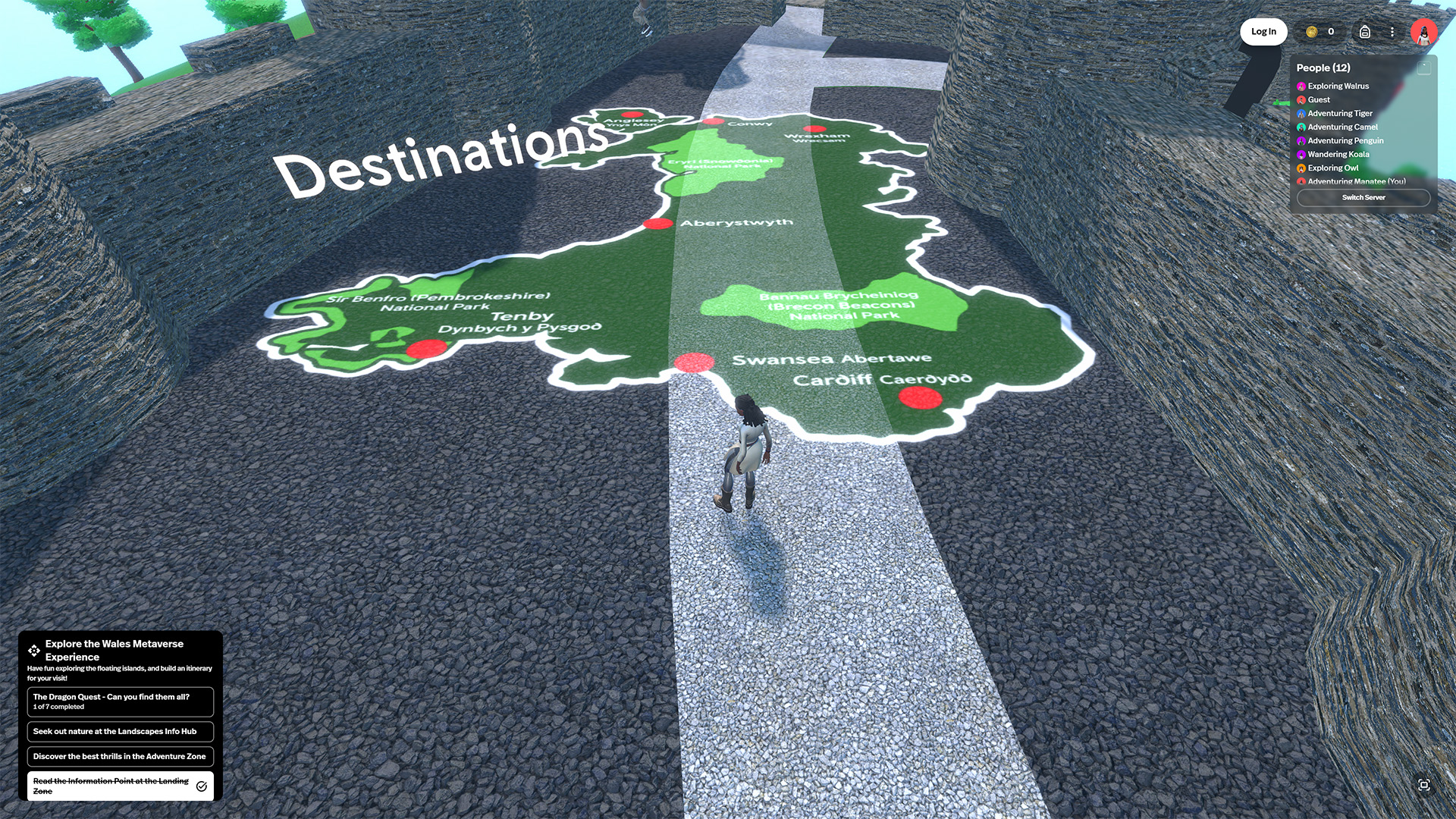
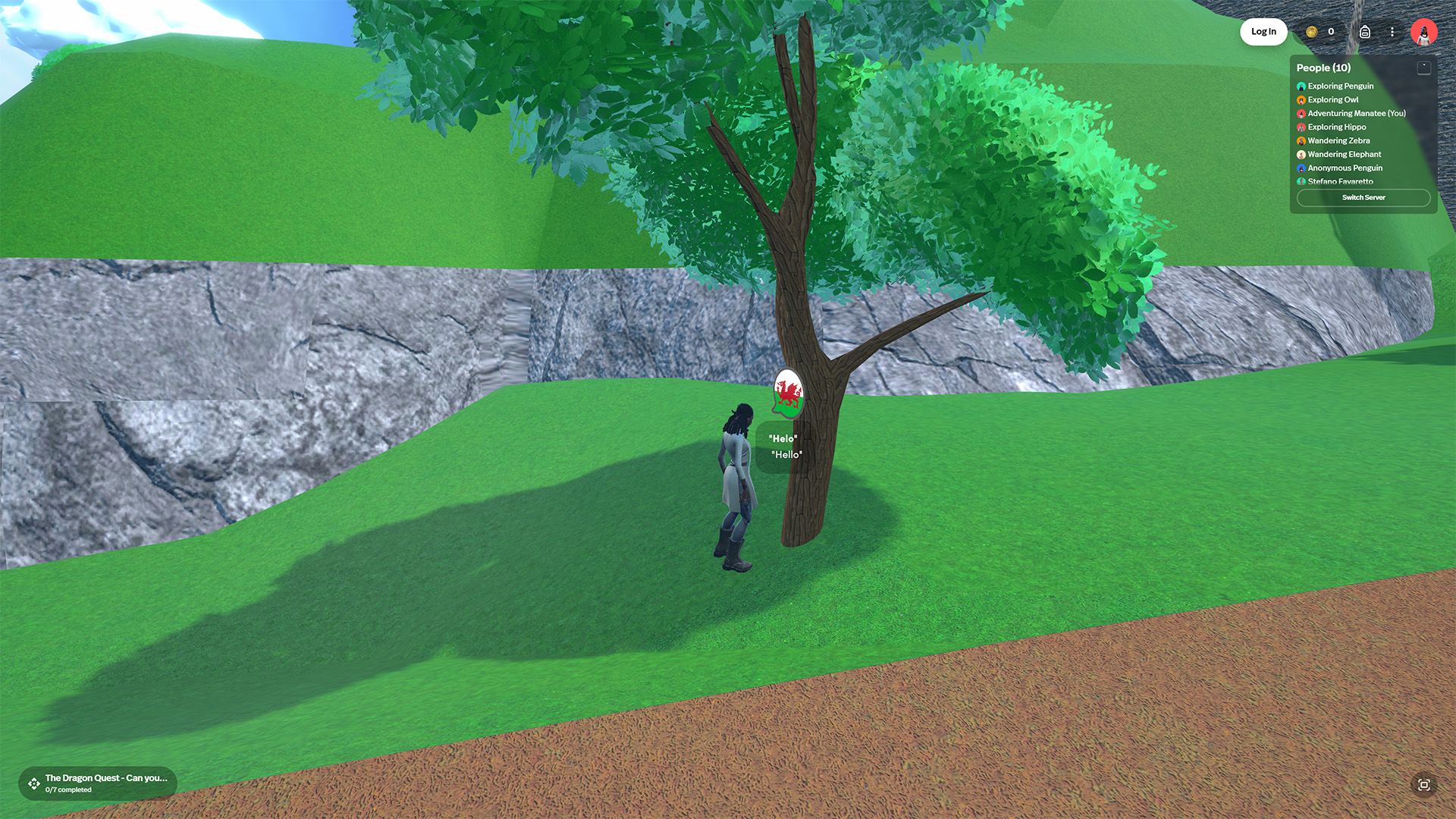
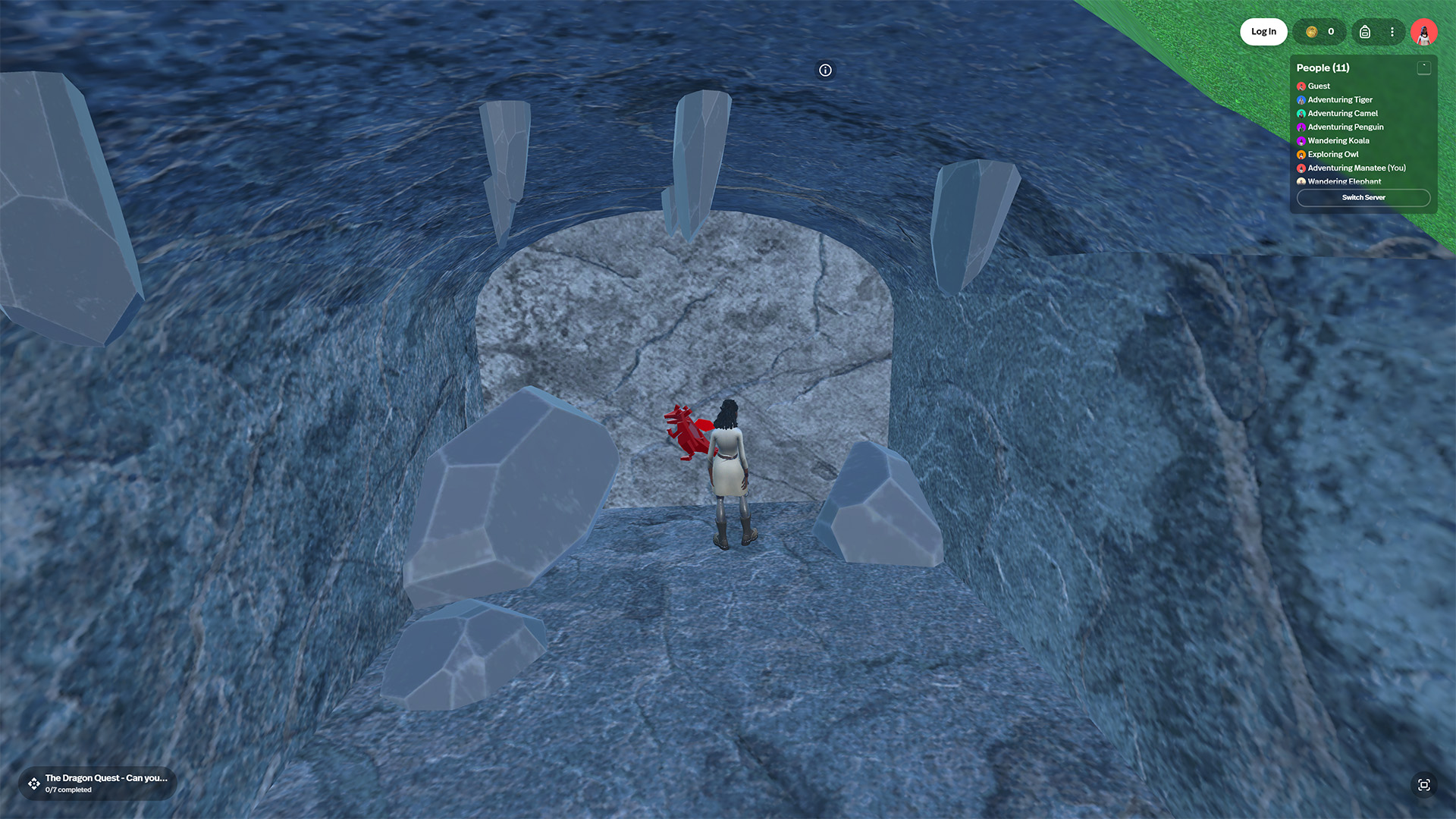
Exploring further, I find the dark sky educational zone, which I must double jump front flip onto a moving platform to get to. From there, I can forward flip onto the climbing wall, which definitely isn't just a JPEG, but don't look too closely. You can take the cable car to the lighthouse for a glimpse of some extremely good puffins. This, I feel, is good PR for Cymru's often overlooked seasonal puffin population.
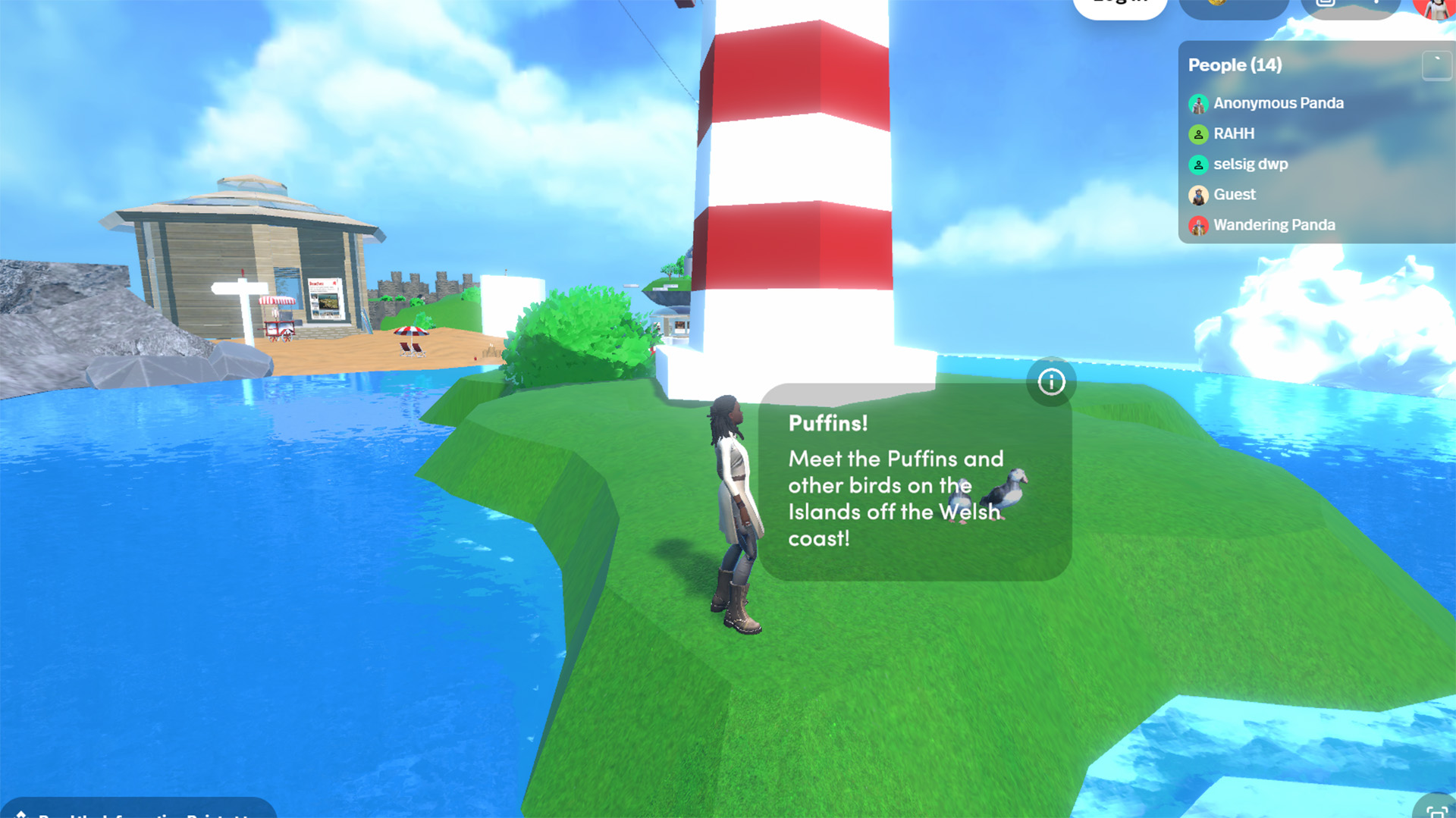
What's less inspired is the outdoor auditorium, where I'm invited to sit on one of the many benches facing the screen. On which, an advert for Wales plays on repeat. I am the only digital tourist taking in the view.
It's easy to poke fun at the Cymru metaverse. And rightly so, if the Welsh Government spent any sort of money on this. Yet I am taken by one tiny aspect of it: the miniature TfW train that shoots out of a tunnel on one side of a tiny stretch of track and back into another tunnel on the other end. Over and over. Living in a town that recently received new trains as a part of the South Wales Metro plans, I talk about new TfW carriages to anyone who will listen.
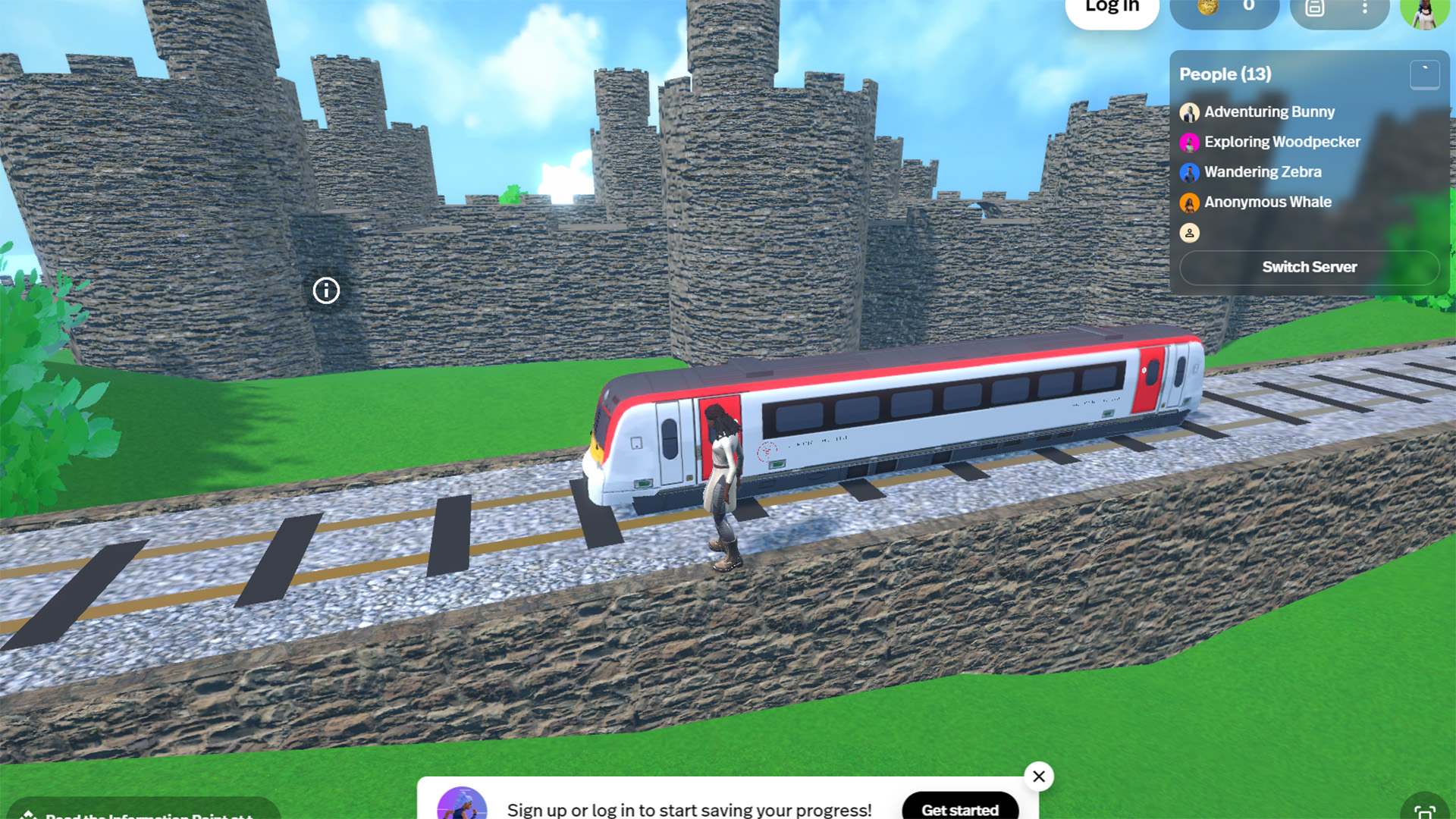
And then the metaverse crashes on me. I'm returned back to my view of rain hitting against the windows on this gloomy day in (real) Cymru. I'm not quite sure what to make of my time in the metaverse.
On the one hand, it's much like any other budget metaverse project—barely a game, much less anything more interactive or impressive to demand an entirely new title of 'metaverse'. I get it, it's for kids. But it's no Fortnite, either. With no graphical equal in well over a decade of PC or console games, it's minutely more detailed than Croc, the original PlayStation game, though nowhere near as fun. The collectable dragons around digital Cymru aren't anywhere near as cute as the gobbos, either.
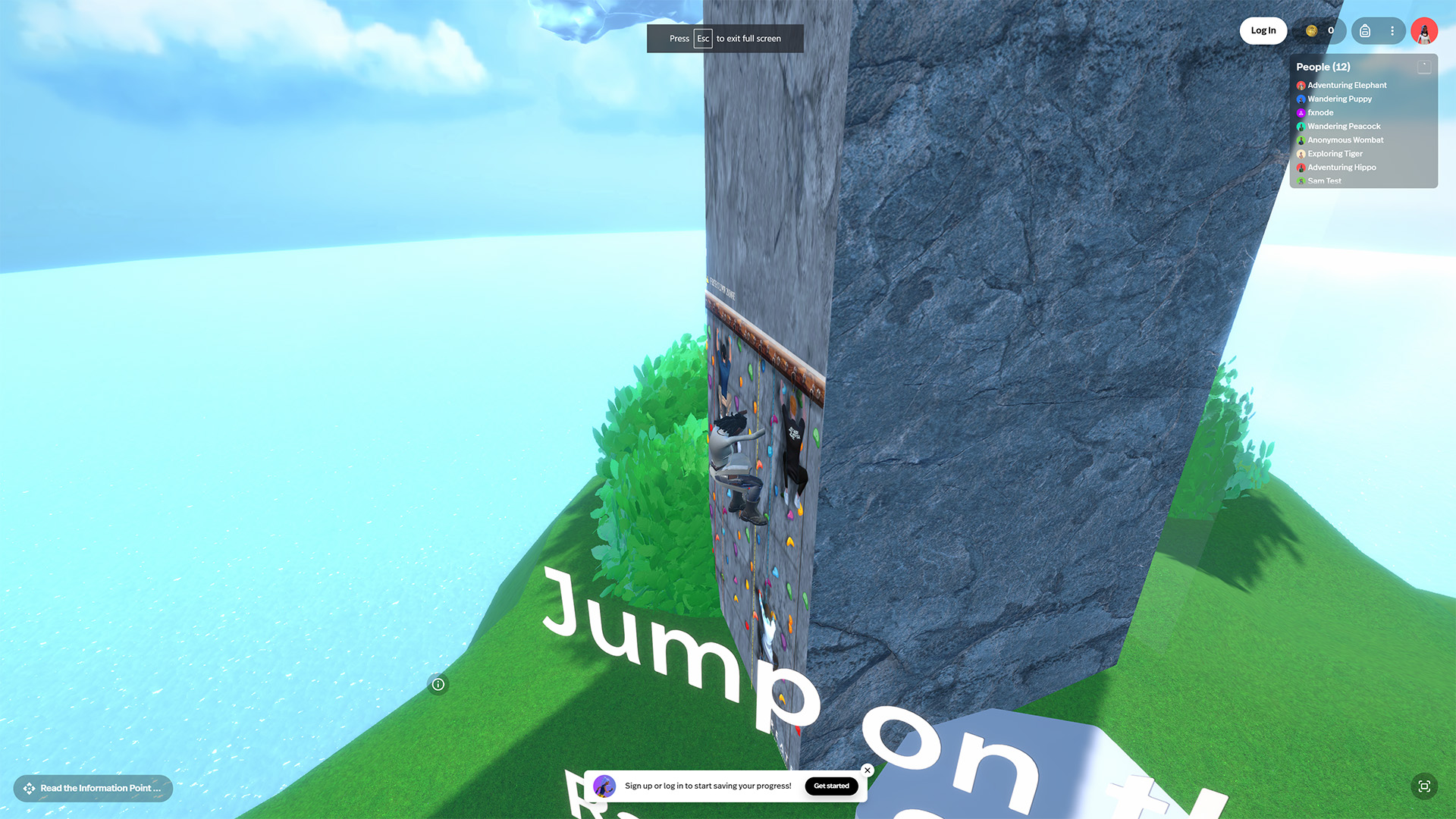
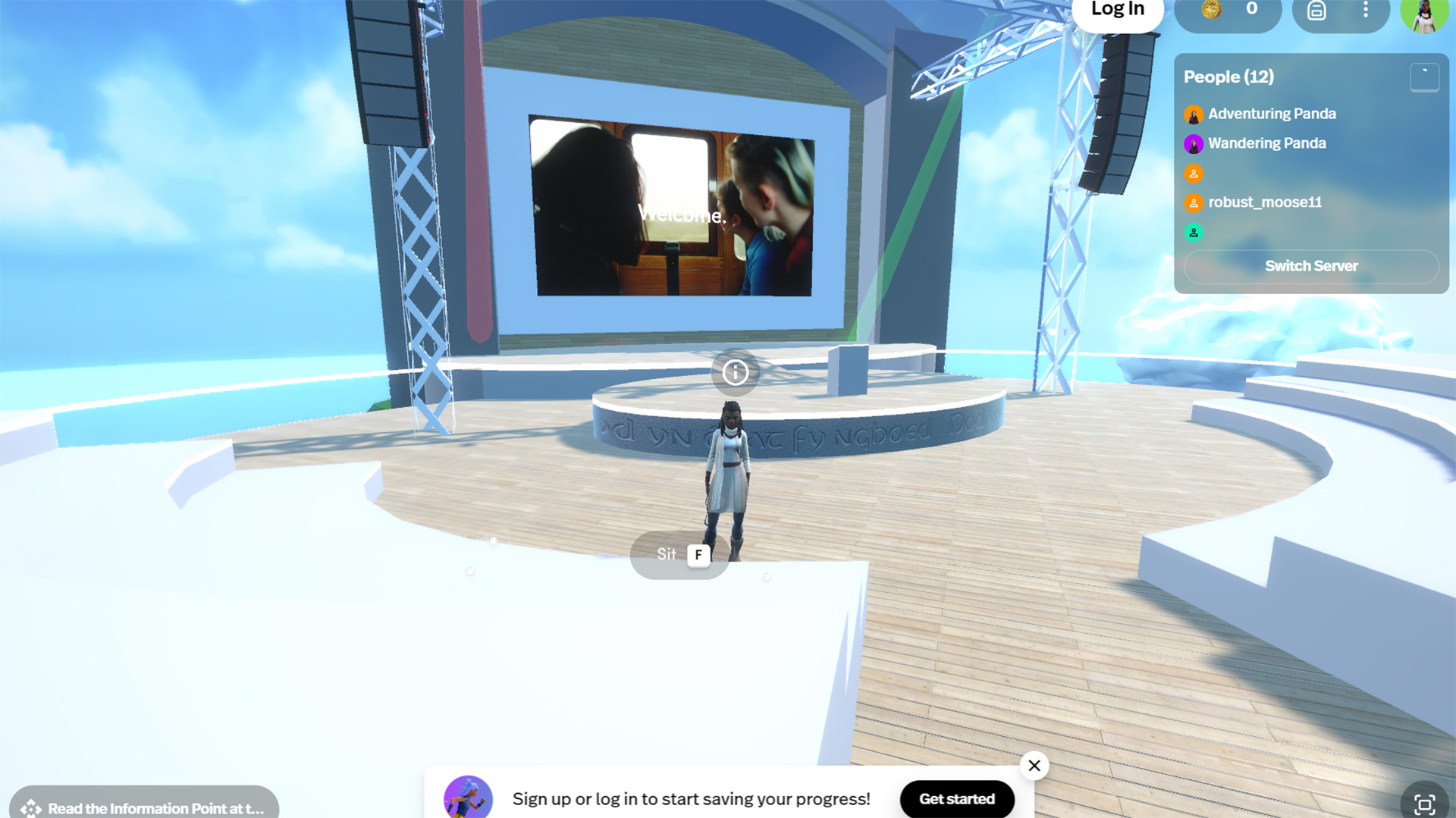
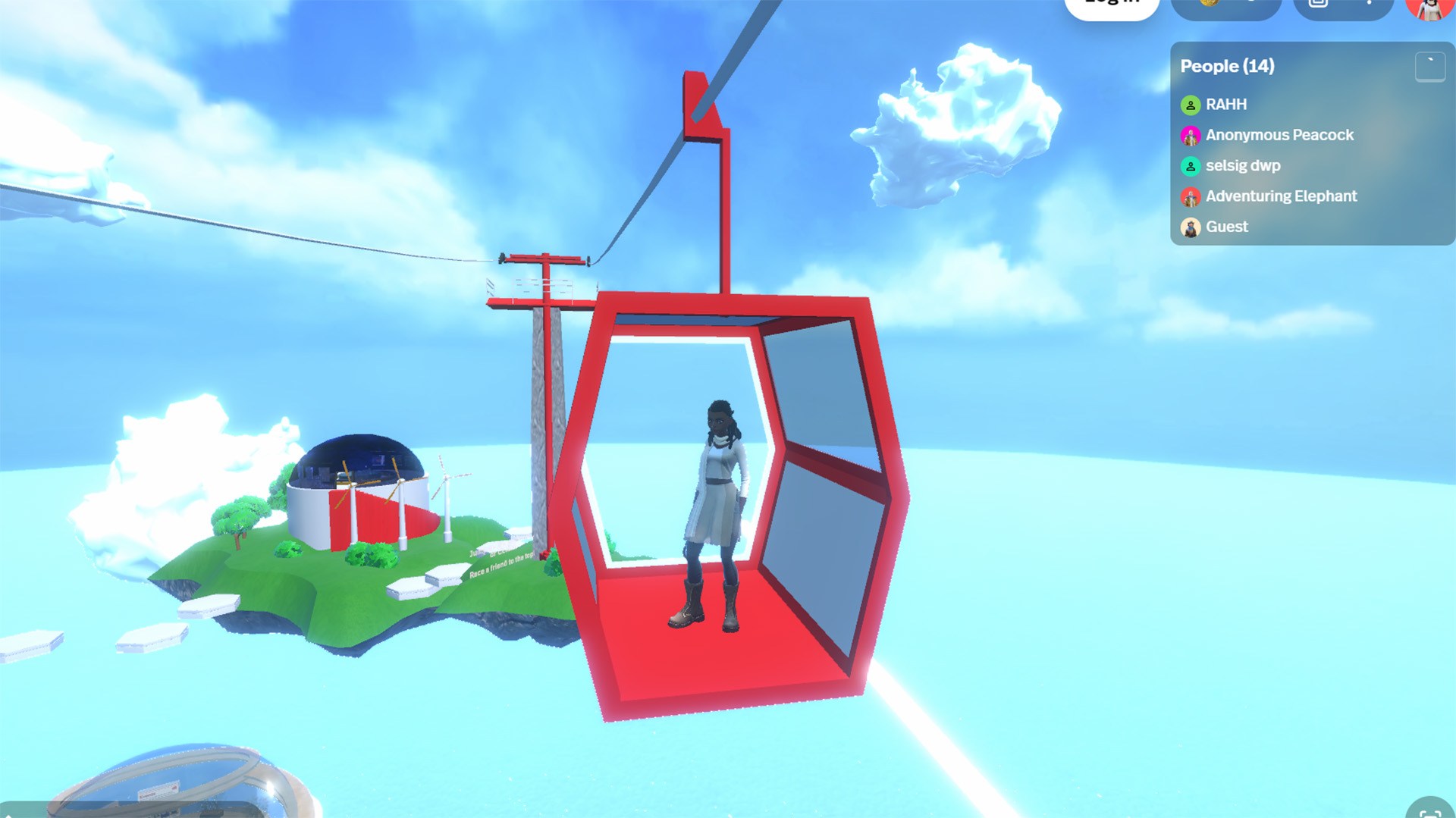
The social features in Cymru's metaverse are little more than perfunctory arm-waving by other players you'll mostly ignore. A digital town hall for sharing ideas (preferably in Welsh), this is not.
It isn't even particularly representative. Imagine it: scaled-down versions of Conwy castle, Yr Wyddfa, the Principality Stadium, Pen-Y-Fan, the Pembrokeshire Coast, and the Senedd. Yet there are no mountains, stadiums or beautiful coasts. Just strange information points on the floating island with images of the real thing. The real Wales.
On the other hand: puffins, trains and good intentions. Metaverse Cymru is, at the very least, pretty cute.







